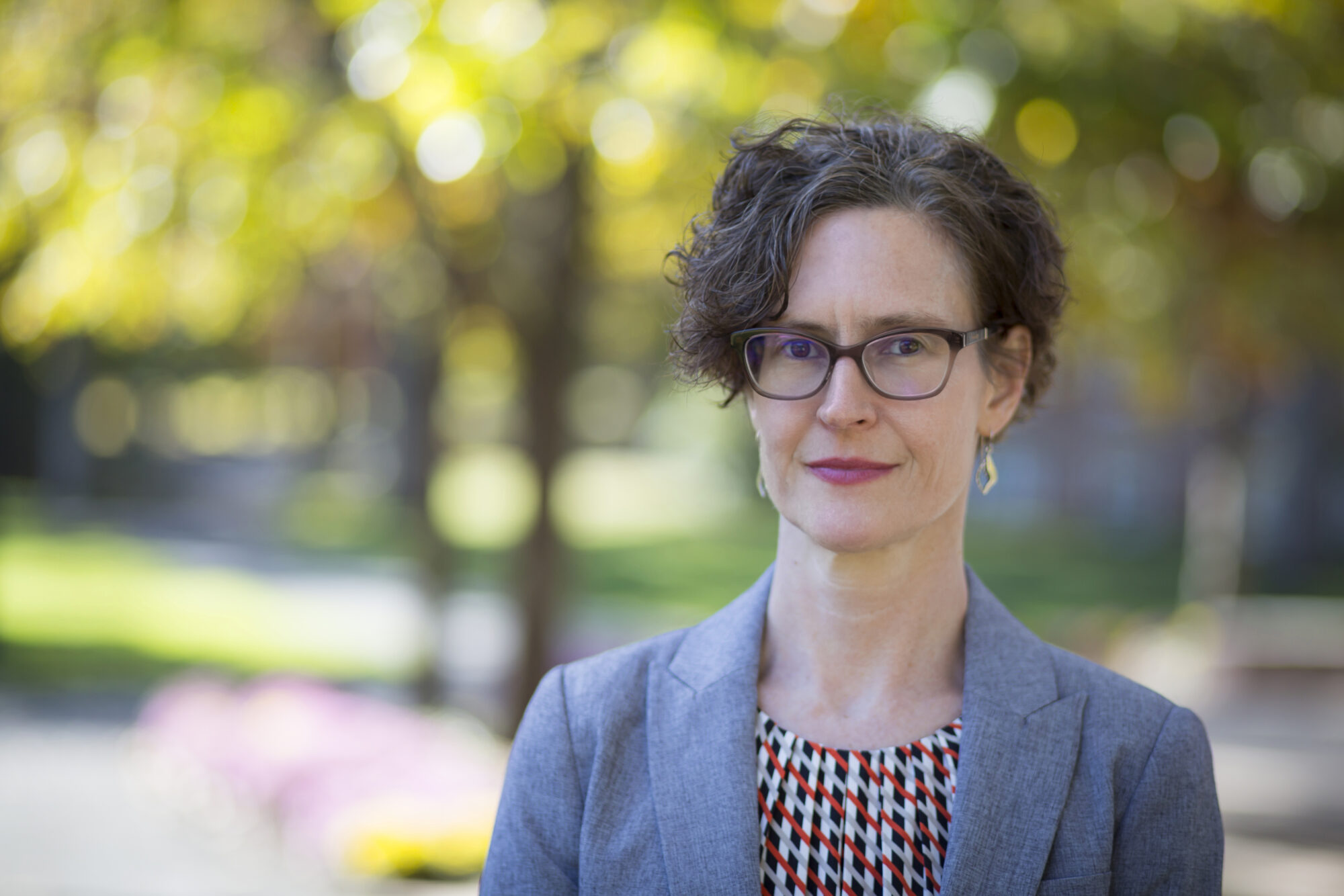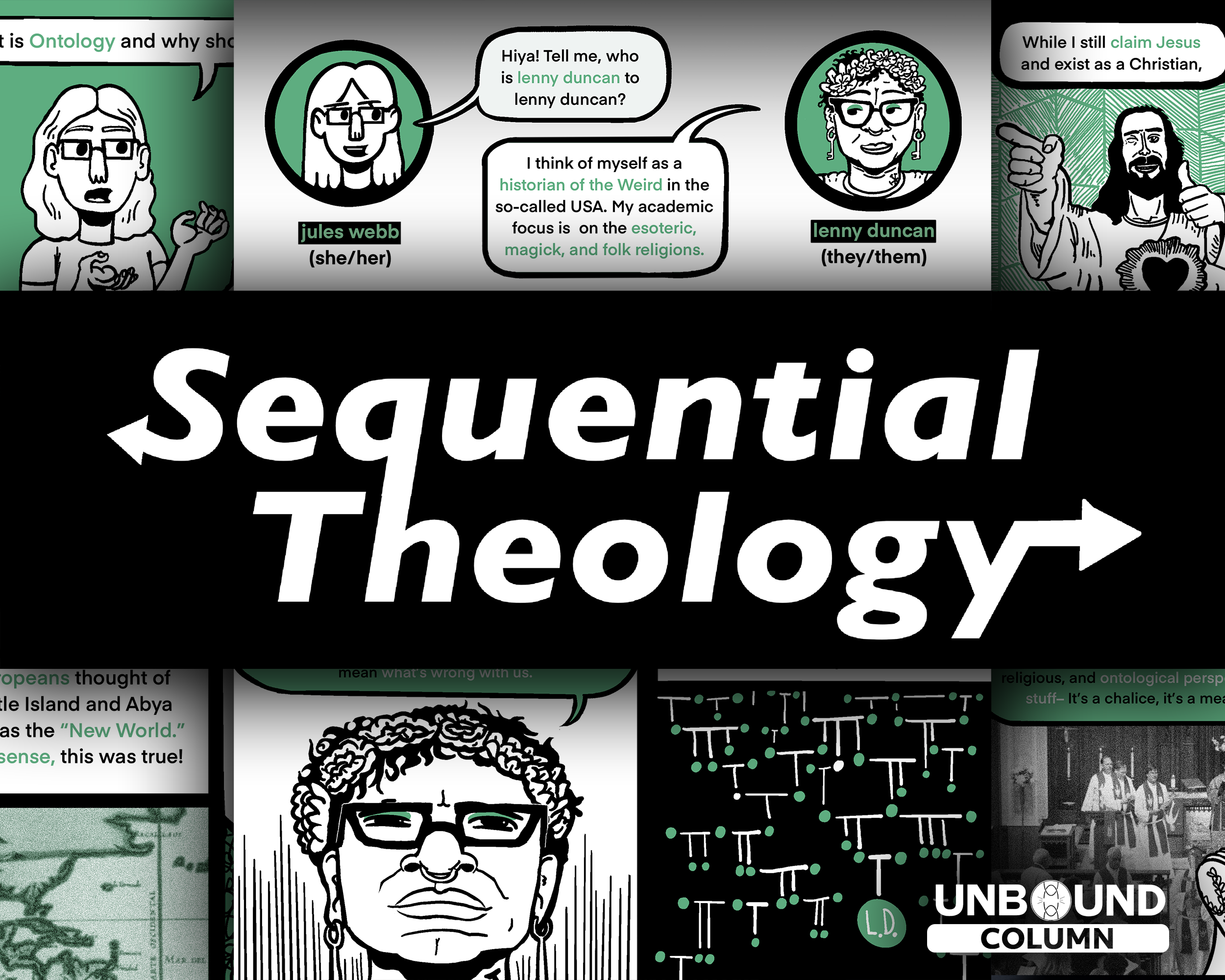A theological claim that “life begins at conception,” or at “fertilization,” is the premise underlying the moral assertion that “abortion is murder,” which justifies laws that ban the ability to terminate a pregnancy. Without such a premise, it would be (more) starkly, nakedly tyrannical and barbaric for the state to deny reproductive healthcare to a pregnant person and to, thereby, force that person to gestate and birth a baby against their will. As Bradley Onishi puts it, “The premise that life begins at conception provides Christians a license to prioritize ‘unborn lives’ over almost all others.” There is, however, very little basis in Church history for this belief, Onishi notes, and the biblical grounding is even less fertile, as I explain below. Christians who support reproductive justice, therefore, have both a unique opportunity and a moral mandate to critically challenge the patriarchal roots of this incredibly damaging theology. They can do so by telling a new story of procreation, which is biblical, but also feminist.
The ancient, patriarchal, highly male-centric, biblical view of procreation largely ignores the autonomous personhood, agency, and labor of the women who do the actual creation of new human lives. From this perspective, the father – fused in some sense with God the Father – is the primary agent, and the mother is taken for granted as almost an appendage of her husband. So, in a sense, it might as well be true that “a life” exists at the point of paternal participation in reproduction. In other words, the Bible does not at all establish a “life at conception” theology; it simply glorifies male fertilization and paternity (think about all those “begats”), and the Christian right exploits this emphasis. This is an argument I elaborate at length elsewhere, but here I want to focus on the crucial intervention that progressive Christians can make by refusing to ignore the time, process, and work that goes into incarnation.
The stakes are high, and the time is nigh for a major cultural paradigm shift about reproduction and personhood. Abortion is highly restricted in most states, negative impacts to health and all manner of gynecological/obstetric care are multiplying, and legal efforts to establish “fetal personhood” are gaining ground. The goal is to build case law affirming such personhood to the point that the Supreme Court agrees and declares that fetuses from conception are entitled to 14th Amendment rights of due process and equal protection. Such a ruling would not only eliminate abortion in almost all cases but also threaten IVF and some forms of birth control, as well as render miscarriage criminally suspicious, in every state.
The bottom line is that two distinct, equal persons with the same legal rights cannot occupy the same body at the same time. If a fetus is a full person under the law, then the personhood of the mother is partial and subordinate, only relevant if it does not conflict with the needs of the “unborn child.” Note the way this logic plays upon our moral commitments to put actual children first. Of course we prioritize our children if it comes down to it, but is that the right way to think about pregnancy, prior to the existence and viability/birth of a clearly distinct human being in its own breathing body? If the reality is that the fetus is not yet a human being, because someone has not gestated it to be so, then what about the pregnant person’s 13th Amendment protection from “involuntary servitude” and forced labor?
This material, bodily labor is at the heart of the matter – “life at conception” theology gets procreation exactly backwards. Cast aside oppressive male-centrism, and a different picture and narrative emerge. Yes, the process for the creation of a new life begins at conception, but 99.9% of the activity of reproduction happens after that, slowly, over time, and only through the gestational labor – day in, day out – of the pregnant person, IF the person decides to do that labor. IF the person consents to do that labor. There is no “baby,” no “child,” no “person,” no individual “human life” without a great deal of incarnation, at least until the point of viability. And even then, under dire circumstances, prioritization of one person or the other is still sometimes necessary. Jewish law, wisely, affirms that the well-being of the “born” person – the mother – is the ultimate priority.
Indeed, despite ancient patriarchy and its biblical permeation, Judaism only recognizes a full human life to begin at birth, with breath. Such theology is consistent with Gen. 2:7, when the human “became a living being” after its body was formed and after it took a breath. Similarly, none of what is finished and deemed “good” in the creation story comes about instantaneously. God’s commands get all the theological attention, but read carefully, it is the earth and seas (vestiges of mother goddesses) that materially, in time, “bring forth” all the creatures (Gen. 1:20 and 1:24). Eve, too, makes it clear that she “produced a man,” albeit under Adam’s rule (Gen. 4:1). We are all physical, created beings – perhaps also with spirits or souls, but bodies, which must be made, are essential. So we cannot ignore that dimension of what “a human life” is when considering procreation morality.
Contending with a fertility window of around 35 years, women have been making decisions about avoiding, continuing, or ending the labor of pregnancy throughout human history. Control is imperfect, however – even today, over a third of pregnancies in the U.S. each year are unintended, and many develop problems or are unwanted. For a myriad of reasons, about 1 in 4 women will have an abortion in their lifetime. One could say there is a kind of holy stewardship of the powers to gestate, abort, nurse, etc. that people with those capacities engage in as best they can. As full persons “made in the image of God,” they should be understood to be moral agents who deliberate, pray, discern, and act to do the right thing, whatever that means at the time, under specific circumstances.
The living out of such reproductive stewardship over decades becomes a story, which could be told as a journey in faith, were it not for the fact that major aspects are commonly considered to be shameful. Around 62% of people who abort their pregnancies are religious, but how often are they welcomed in their faith communities to talk about abortion consideration and the beautiful things they said yes to because they said no to gestation? Our participation in divine powers of creation more generally can take infinite forms, but we are finite beings with limited energies, always making tough choices. Small group and pastoral help with discernment is commonplace in churches. Why not include discussion of IUD use, vasectomy, IVF treatment, amniocentesis results, starting a family, ceasing to do volunteer work due to gestation/nursing exhaustion, and abortion?
A new feminist story of procreation must make the materiality and labor and time aspects visible and valuable. It must take agency, dignity, autonomy, and consent very seriously. Try starting with Mary. In the “Annunciation” story, Mary should be asked, not told, to bear Jesus. Then, when she “ponders these things in her heart,” there is real discernment, which allows for the fact that many pregnancies are not meant to be. In the Creed, it is not simply that Jesus “became incarnate,” but that Mary actively incarnated him. Liturgically, what about the long stretch between the Annunciation and Advent/Christmas – might we check in, at least each trimester, to see how Mary is doing with gestation? These labor relations and actions are things we need to notice and speak about intentionally to tell the traditional stories in feminist ways.
Also consider sitting with people’s abortion stories, viewed in comparison to pregnancy as equally moral versions of participation in creation. Here is an example from a woman who wielded her agency and stewarded her procreative and creative energies in meaningful ways at different times:
“For some to tell me I murdered a child; I would say that’s the same as your wishing my other children dead, as my husband and I know we wouldn’t have stayed together to have these children all those years later. We were too young. We made the life we wanted… I’m grateful.”
The biblical and Church traditions were created by men, who were/are often actively weaving religiosity and patriarchy. In matters of procreation, female bodies and the work they do are present, but are constructed in an unjust manner. A Christian commitment to reproductive justice today demands that we ground in core values – equality and dignity of all humans created in the image of God, love of neighbor, health and flourishing, justice, democracy, etc. – and, from there, transform stories and other religious constructions of procreation to align with those values. Then tell and live them out with great conviction, including in the public square!
Unbound is a space for multiple perspectives and views. All opinions are that of the author.

Elizabeth M. Freese, PhD is a sociologist of religion focused on the Reproductive Justice movement and serving as Scholar-in-Residence with SACReD (Spiritual Alliance of Communities for Reproductive Dignity) to support its education and advocacy programs. In other service to the faith and repro movement, she was Associate Director of the online Learning Center at RCRC (Religious Coalition for Reproductive Choice), where she co-developed and managed the production of courses, including “Personhood and Fetal Life,” and was a Research Associate with Auburn Seminary, studying public discourse on abortion morality and creating abortion access advocacy resources for Christians.
In her public scholarship, Freese contributes to an understanding of the interactions between Christianity and the politics of reproduction. Her essays have been featured inSalon, Religious Dispatches, Common Dreams,Feminism and Religion, and Vanderbilt Divinity School’s Interventions forum, and she has participated in webinar panels with Drew University’s Forum on Religion and Global Heath, Women’s March, RCRC, and Vanderbilt Divinity School’s Program in Religion and Justice.
Academically, Freese’s research interrogates dynamics between Christian religious constructions in biblical myth and Eucharist ritual, on the one hand, and, on the other, intersectional, feminist justice concerns. Recent publications include “What Grows in the Wilderness?: Feminist and Womanist Liturgical Offerings in a Time of Social Interregnum”(2023) and “Toward Eve’s Exodus: Un-Misrecognizing Androcentric Reproductive Labor Ideology in Christian Right Rhetoric and Genesis 1-3” (2024). She is currently working on a book, Constructing Women: A Feminist Analysis of Reproductive Labor Ideology in Christian Myth and Ritual.
Freese earned a PhD in Sociology of Religion with a Women’s Studies Concentration at Drew University, a MA in Religion at the Episcopal Seminary of the Southwest, a MA in Communications at the U of AR, and a BA in Sociology at Barnard College, Columbia University.



Unbound Social